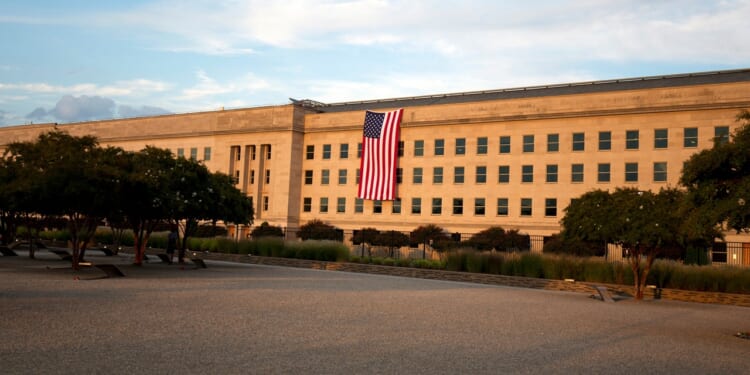The accumulating consequences of the ongoing government shutdown to national security, military personnel, civilian personnel, and the defense contractor workforce could take years to see and solve.
Military pay, civilian pay, readiness, modernization, planning, training, education, exercises, manufacturing, reputation, the economy. The national security consequences of the government shutdown extend well beyond the visible, fundamental and personal issue of potential or actual missed paychecks.
Reports are emerging of impacts to strategic analysis needed for future defense planning. Training, exercises and professional military education necessary to maintain readiness and technical proficiency are being canceled and delayed. Holdups in new contract actions, already lagging due to last year’s year-long continuing resolution and administration transition, put industry in further trouble as they struggle to develop and build the defense capability the nation needs. The inability to disburse payments hits all who work for the Department of Defense, particularly smaller businesses. The longer the shutdown lasts, the more damage is done and the longer it takes to recover.
The administration is creatively pushing the limits of its authority to mitigate some of the most immediate shutdown consequences on the military and their families. As they use other available resources to cover that gap, there is plenty of confusion about how long they can juggle things before money runs out, and what the near and long term consequences will be. Though some of these questions will remain unanswered in the short term, it is certain that the money diverted from military modernization to military pay is finite and will need to be replaced.
How Does a Government Shutdown Affect Military Readiness?
The accumulating and compounding consequences of the ongoing government shutdown to national security, military personnel, civilian personnel and the defense contractor workforce, industrial base, and supply chain could take years to see and solve.
The impacts on the nation’s security are immediate, long-term and in some cases, unrecoverable. Time and money lost during the shutdown are gone for good—and the negative hits to America’s reputation, competitiveness, and readiness will take time to recoup. Moreover, a government shutdown feeds directly into the strategic narrative of our adversaries who have the most to gain when we provide evidence to support their messaging that the United States is fractured, dysfunctional, distracted, and unreliable. In addition to damaging our own national security and reputation, everyone who works with us for defense loses. Those with the least ability to absorb disruptions, such as small businesses and junior personnel, get hit the hardest.
Our country’s defenders are likely to experience shutdown impacts in three basic ways: pay (once money runs out for stop gap efforts like that used for the October pay periods), work and training disruptions, and instability for their families. Uniformed personnel continue to work during a government shutdown, but cannot be paid until the shutdown is over—unless that money is siphoned from other priorities, such as modernization programs. They will perform whatever duties are necessary to support excepted activities and to cover for civilians who are furloughed. Their training, exercises and professional education will be disrupted, to the degree they are funded with lapsed appropriations or taught by civilians who will be furloughed. Likewise, any change of station moves not funded prior to the shutdown will be delayed unless they are directly required to support excepted activities. They will also experience general security and safety impacts along with the rest of the country as America continues to lose ground on modernization programs necessary for military competitiveness.
The Shutdown Is a Betrayal of America’s Promise to Its Workers
The Pentagon reports that of the approximately 740,000 civilians currently in its workforce across the country and world, over half have been furloughed. Though legislation enacted during the 2019 shutdown regarding provision of back pay and leave gives some comfort, the length of the shutdown means multiple missed pay periods causing mounting financial challenges that cascade through the economy. In addition, the loss in productivity—work that the American taxpayer is funding—is in the billions and growing each day.
There are plenty of questions about how the Pentagon is paying military forces who are working during the government shutdown, and there should be. But there is a more basic issue that should be highlighted. If a government worker works, he or she should be paid—period. Whether one wears the uniform, keeps America’s air travel safe, or performs any other of the myriad excepted activities for the federal government during the current lapse in appropriations, their work must be compensated. That compensation must not come after the government is back open, or after approval of additional funding, or be contingent on moving money around. It must be reliably paid on time—as per the fundamental agreement upon which America’s public employees do their work and receive resources in exchange for their time and effort.
Everything Won’t Just Return to Normal After the Shutdown Ends
Crucially, while the military and civilian workforces are likely to receive back pay for missed income during a shutdown, defense contractors will not. Hundreds of associations and stakeholders, including many representing the national security sector, have urged Congress to reopen the government, with the Aerospace Industries Association noting that: “Without a continuing resolution, the innovation and development necessary to protect national security and maintain functionality of air travel will be halted, causing serious disruptions.”
To be clear, although the Defense Department will continue operations to support national security and ongoing missions, it will not be able to disburse funds. In other words, it can accumulate bills (incur obligations) for critical functions, but it cannot pay those bills until the shutdown is over. It is not hard to imagine the reverberations that would take place through the industrial base and the supply chain that supports it.
The United States’ role in defending human dignity, expanding human potential, and building a freer and safer world is crucial to its strength and prosperity. Its leaders must immediately perform their fundamental responsibility, reopen the government, and govern.
About the Author: Elaine McCusker
Elaine McCusker is a senior fellow at the American Enterprise Institute and previously served as the Pentagon’s acting undersecretary of defense (comptroller). Her writing on the military’s commissary system has appeared in The National Interest, The Military Times, and The Ripon Forum.
Image: Shutterstock / Janusz Pienkowski.


















